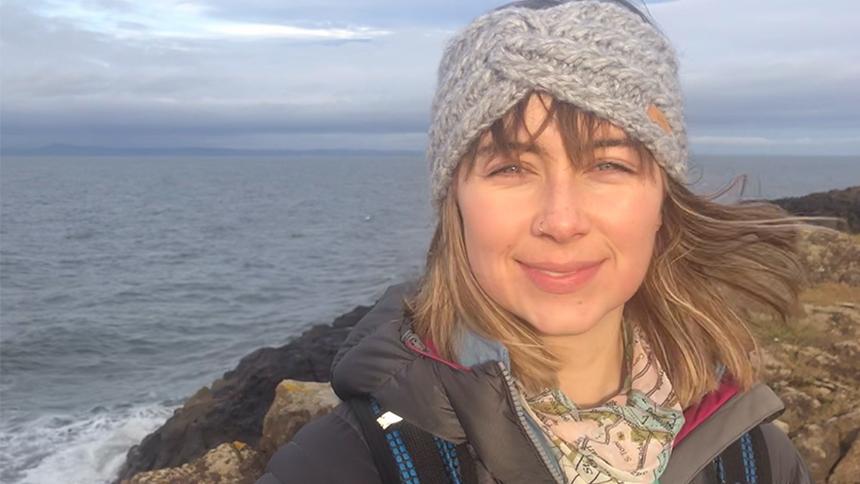Researching ‘going out’ for people affected by dementia – including finding their way and getting lost
Meet Katie Gambier-Ross, Research Fellow and PhD candidate at the University of Edinburgh.
Favourite things?
- Book – Slaughterhouse-Five by Kurt Vonnegut.
- Way to spend time – In or on the ocean!
- Memory – Spending summers in my hometown of Kinsale, Ireland, with friends and family, sailing and swimming in the ocean. One day in particular stands out in the summer of 2013 that my friends and I still refer to as ‘boat day’.

Why dementia research?
Mom was a dementia specialist nurse and I saw first-hand how her work brought her, and the people around her, so much joy and fulfilment.
I chose to work in dementia research because there are so many misconceptions about dementia.
By better understanding people’s lived experience, we can tackle stigma and discrimination, and enable people to lead lives of meaning and purpose regardless of their diagnosis.
How has Alzheimer’s Society supported your work?
Alzheimer’s Society funded my PhD studentship, which began in September 2017. My research aimed to understand the experiences of ‘going out’ for people with dementia and carers – including finding their way, getting lost and being reported missing.
Through walking interviews, traditional interviews and group discussions, I found that people were still very active and engaged in their local communities and that being able to go out was important for their wellbeing.
I also documented challenges that people face when navigating, and the strategies they use to overcome and avoid these.
What are you currently working on?
I am working on getting my PhD research out into the world so it can be useful! One way I plan to do this is by producing a guidebook based on my PhD findings.
This could be used by search and rescue teams when people with dementia are reported missing.
What difference do you hope this will make?
As well as helping searches, I hope my PhD research will encourage other researchers to consider more creative and innovative methods, such as walking interviews.
I also hope my research will add to the new and growing body of research known as ‘critical dementia studies’, which examines the diversity that exists among people living with dementia.
In what direction would you like to take your research in future?
The people who participated in my PhD research were all so unique and they taught me that, despite living with dementia, it did not define them.
I would like to learn more about how people’s experiences of dementia intersect with their experiences of gender, sexuality, ethnicity and socio-economic status.
This could be used to ensure that dementia policy and practice are as inclusive as possible.
Donate
Your donation funds increasingly important dementia research that is only possible with your help.


gill hn
saysPeople frequently speak of keeping a person with dementia safe. The risk factor is very important and needs to be discussed with the affected person so that they understand and agree the level of risk they would want to determine the way they live. My partner, a fit 89 year old, loves walking - in the countryside and by himself. This poses risks he wishes to take. He now has an Apple watch which he wears and carries an iphone so can be tracked and in communication. This does not eliminate risk but goes a small way to describing some of the many factors involved.